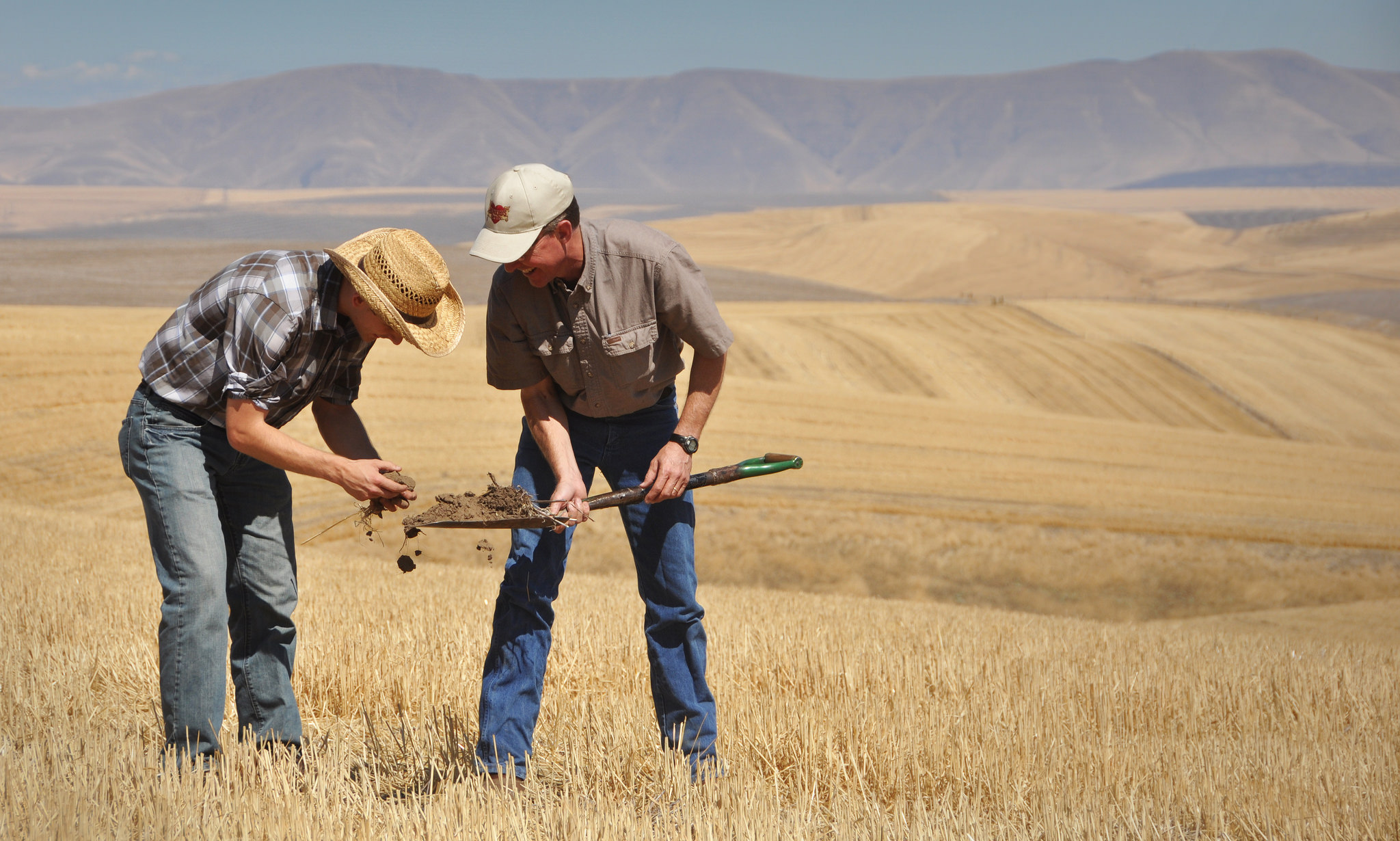In my last article, I described how making polluters pay for their pollution, contrary to fossil fuel industry whining and myth-telling, in fact would help Oregon’s economy—just as it has helped the economies of other states, provinces, and regions that have demanded that polluting industries do their part to act on climate.
A common comeback I hear goes something like, “Sure, it may help urban dwellers and economies, but it will hurt the state’s rural residents: the family farmers, the ranchers, the folks who have longer commutes to their workplaces.” If it were true, that would make for a powerful—not to mention photogenic, thanks to Oregon’s gorgeous rural scenery—argument.
But it’s not true. Let’s take a look at why.
Rural Oregonians live less carbon-intensively than urban ones
Yep, you read that right. Under a polluters-pay program, it’s the people with bigger carbon pollution footprints who would pay more, and people with smaller footprints who would pay less. The response above assumes that rural Oregonians have bigger carbon footprints. That assumption is wrong.
A few years ago, researchers at Portland State University (PSU) extensively studied the potential benefits and costs of a carbon tax for Oregon and found that urban Oregonians have bigger carbon footprints than rural ones. They found Portland Metro dwellers, defined by PSU as people living in Clackamas, Multnomah, and Washington counties, emit almost twice as much pollution per person as people living in more rural areas of the state—that is, outside the Metro and Valley regions. Metro has 43 percent of the population but is responsible for 60 percent of the state’s carbon pollution. More rural counties have 30 percent of the population but emit only 20 percent of the pollution.
This finding may be in part due to income differences. Rural Oregonians, on average, have lower incomes and smaller footprints than people in the more urban Metro and Valley areas. Higher-income people tend to have more opulent homes and more energy-sapping gadgets, and they travel more. They would have to pay more for their more affluent lifestyles, while rural Oregonians with more modest lifestyles would pay less.
Rural Oregonians don’t drive more than urbanites
Contrary to popular myth, rural Oregonians do not all drive more than their urban counterparts. According to a 2012 survey, people in rural counties—Cook, Douglas, Grant, Lincoln, Malheur, and Union—averaged 22,599 miles of driving per year. That’s only slightly more than the 21,339 miles driven by folks in the urban counties of Multnomah and Marion. Residents of Deschutes and Umatilla, which are mixed urban-rural counties, actually drove the most: 24,183 miles per year.
Rural Oregonians’ electricity is cleaner, too
Rural Oregonians, on average, use cleaner electricity than do the state’s urban dwellers. That’s because most of rural Oregon, or about 30 percent of the state overall, gets its electricity from consumer-owned utilities (COUs, which include public utilities, cooperatives, and municipal utilities). And these COUs, in turn, get fully 85 percent of their power from carbon-free hydro sources, which would remain cheap under a policy like the Clean Energy Jobs Bill.
[list_signup_button button_text=”Like what you|apos;re reading? Sign up to receive occasional carbon pricing updates directly from Kristin Eberhard.” selected_lists='{“Carbon Pricing & Making Polluters Pay”:”Carbon Pricing |amp; Making Polluters Pay”}’ align=”center” color=”green”]
Pacific Power and Portland General Electric consumers, unfortunately, aren’t so lucky. Those utilities, respectively, still source a whopping 67 and 30 percent of their power from coal, whose high pollution impacts would carry a financial responsibility under a polluters-pay program. Pacific Power does serve some rural customers, but the Clean Energy Jobs Bill sets aside plenty of money to prevent those people from shouldering the cost of their utility’s poor decisionmaking.
Investments from a polluters-pay program would benefit rural Oregonians’ jobs and wages
I sort of saved the best for last there, didn’t I? Returning to the findings of the PSU study cited above, rural Oregonians not only would pay less than Metro dwellers for their pollution (because they produce less in the first place), but they would benefit the most from the revenue collected. The PSU researchers found that investing carbon revenue into public priorities like roads would create jobs and increase wages in rural communities. The Clean Energy Jobs Bill goes further and also invests money directly into rural communities, low-income households, and small businesses. In sum, a policy like the Clean Energy Jobs bill would benefit both Oregon’s economy as a whole and also specially the state’s rural families and businesses, too.
Unfortunately, forces working to thwart Oregonians’ desired climate action will continue to cry wolf, claiming that a carbon price hurts rural residents. But these fossil-fuel-peddling interests are merely trying to obscure the harder fact they’d rather have the public forget: that all of us, urban, rural, and suburban alike, are subject to the rollercoaster up-and-down costs of filling up our gas tanks—and as long as they get to spew their pollution for free, we’ll suffer the unpredictable cost consequences.
I’d prefer to save families from the fossil fuel rollercoaster and choose a clean, stable, clean energy economy for my community, my state, and my children’s future. Oregonians are right to worry about impacts on communities across the state, but they can rest assured that rural and urban dwellers alike will benefit from taking power back from polluters.


Comments are closed.